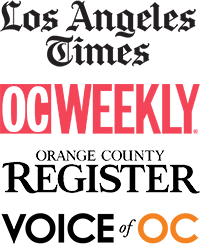
JAMES M. CRAWFORD
Criminal Defense & Appeals Attorney
Ratings


Memberships


Media Coverage


Alcohol is perhaps the most popular mind-altering drug that leads to impaired driving charges in California, but it is far from the only one. People also consume marijuana frequently because of its legal status in the state and then drive afterward. Plenty of people also use prohibited drugs or controlled substances prescribed by their doctors before getting behind the wheel.
When the average person thinks of driving under the influence (DUI) charges, they will assume that they could get arrested for getting behind the wheel after drinking. However, California has a complimentary law that can lead to driving under the influence of drugs (DUID) charges.
The legality of the substances involved does not matter. The focus is on the impact they have on driving skills. Both legal and prohibited drugs can lead to DUID charges.
What are the possible penalties for a DUID offense?
Typically, a DUID offense will be a misdemeanor that carries the same penalties as a misdemeanor DUI involving alcohol. Those penalties include probation, fines, DUI school and jail time, in addition to the temporary suspension of your license.
However, as with drunk driving offenses, drugged driving allegations can lead to felony charges. Four prior impaired driving charges involving any substance or a felony impaired driving conviction might mean that the current charge becomes a felony. If a driver under the influence of drugs hurts someone else, the charge also becomes a felony. The penalties for a felony DUID include jail time and fines.
Can the state prove drugged driving as easily as drunk driving?
There are numerous chemical tests that can help police officers prove their suspicion of impaired driving. Statements made during an arrest can also lead to DUID charges. Admitting that you took a prescription medication shortly before getting behind the wheel might be enough justification for the state to charge you with a crime, even if you don’t think the drug affected your driving skill.
It is possible for people to fight back against DUID charges, but an evaluation of the evidence and careful planning is often necessary to succeed in such a defense. Learning more about the impaired driving laws in California can help you avoid lifelong consequences after a recent arrest.

